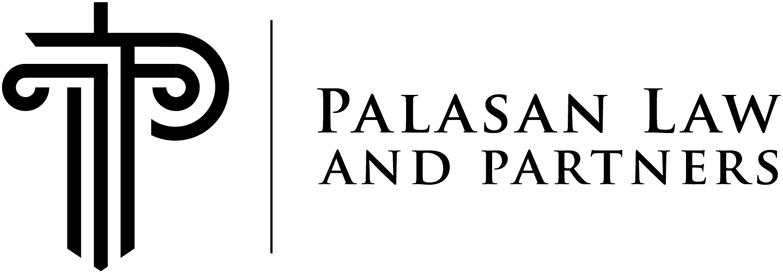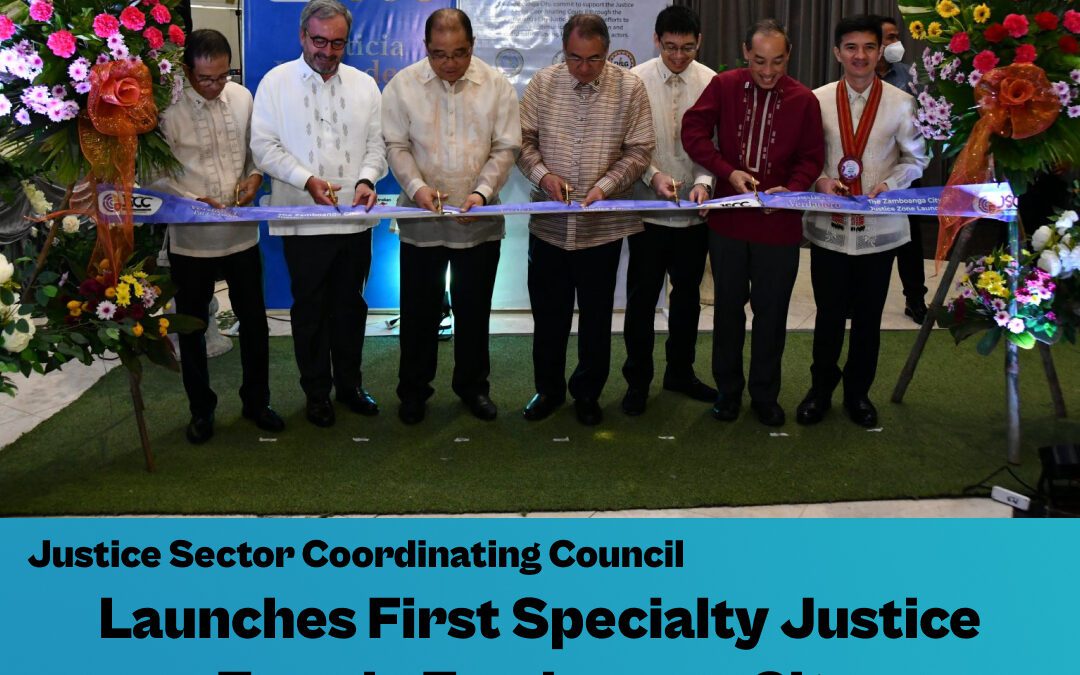Chief Justice Alexander G. Gesmundo led the principals of the Justice Sector Coordinating Council (JSCC) in launching “the first ever trafficking-free Justice Zone” at the Marcian Garden Hotel in Zamboanga City today, February 24, 2023.
With Chief Justice Gesmundo were the representatives of the other JSCC principals: Department of Justice (DOJ) Undersecretary Raul T. Vasquez and Department of Interior and Local Government (DILG) Undersecretary for Operations Lord A. Villanueva. The Supreme Court of the Philippines, the DOJ, and the DILG comprise the JSCC.
The Justice Zone project adheres to its objective of a swift and fair administration of the criminal justice system. It was established to strengthen the coordination and communication among the principal agencies of the JSCC by serving as a venue and a mechanism for communication, principled cooperation, and studied coordination with great deference to institutional independence.
In his keynote message, Chief Justice Gesmundo shared that in launching the Zamboanga City Justice Zone, “the Judicial and the Executive Branches of government are standing together and taking a zero-tolerance policy against all forms of human trafficking in our country.”
“Here in the Zamboanga City Justice Zone we will not only tighten all loopholes in the investigation-arrest-prosecution-trial and judgment phases of anti-trafficking cases, but we will also pilot breakthrough initiatives towards a more victim-centered approach that will hopefully pave the way for a more effective counter-trafficking program,” the Chief Justice emphasized.
Chief Justice Gesmundo added that first among these initiatives is the establishment of victim-sensitive courts which will train justice sector actors to act with sensitivity at all times towards victims of human trafficking to ensure that the victims will be provided a safe and secure environment that will embolden them to pursure their fight against their abusers.
The Chief Justice also said that he will propose to his fellow JSCC principals the expansion of the coverage of the Victims Compensation Fund. “The Victims Compensation Fund is statutorily administered by the DOJ principally for the witness protection program and for unwarranted incarcerations. The funds are generated through a fixed amount collected as part of the required docket fees for every new case filed in our courts,” he shared.
Chief Justice Gesmundo said that he strongly recommends the increase in the amount forming a fund for victims of human trafficking to provide much needed assistance to victims “not only to sustain them and their families pending trial, but hopefully to give them a fresh start post- judgment. This hopefully will finally put a stop to the vicious cycle of victimization caused by economic hardships.”
The third breakthrough initiative shared by the Chief Justice is the provision of video conferencing equipment to prosecution offices and courts for mandatory use in anti-trafficking cases, “to insulate the victims from re-living their harrowing experiences face to face with their abusers, within the confines allowed by the Constitution.”
“So today as we inaugurate the Zamboanga City Justice Zone, we open its doors to all victims of human trafficking as your safe haven. Allow us to treat you with the consideration and respect you deserve as human beings. We undertake to provide you with truly responsive and real-time justice,” concluded Chief Justice Gesmundo.
Supreme Court Associate Justice Maria Filomena D. Singh, Chairperson of the JSCC Technical Working Group on Processes and Capacity Building, also gave a presentation on the significance of Zamboanga City as a Justice Zone.
Justice Singh disclosed that Zamboanga City was chosen as the JSCC’s first Specialty Justice Zone “because the fight against human trafficking began here.” Tracing the history of the Zamboanga City Justice Zone to the 2011 case of People v. Lalli, Justice Singh shared that as a result of the investigations by the Zamboanga City police in 2005, “a criminal charge for cross-border trafficking in persons was filed in the Regional Trial Court of Zamboanga City by Prosecutor Ricardo Cabaron and then Prosecutor Darlene Pajarito.” The case involved a promise made to the victims that they would work abroad as waitresses, but ended with the victims being brought to Sabah and enslaved in sex trafficking. “In a record five months, trial was completed and a decision was promulgated convicting the traffickers and sentencing them to life imprisonment,” said Justice Singh.
She also expressed her gratitude to the Zamboanga City local government officials. “(W)ith our Justice Zone, we offer you a comprehensive package of activities that will not only address the scourge of trafficking through judicial means, but from all fronts of the five pillars of the criminal justice system: law enforcement, prosecution, courts, corrections, and the community. And on top of all these, the Zamboanga City Justice Zone will level up all other standard services available in all our agencies and offices, courts, and stations to the Justice Zone gold standard of responsive and real-time justice service delivery,” she said.
DILG Usec. Villanueva and DOJ Usec. Vasquez also delivered messages on behalf of DILG Secretary Benjamin D. Abalos, Jr. and DOJ Secretary Jose Crispin C. Remulla, respectively.
Zamboanga City Mayor John M. Dalipe gave the welcome remarks, while Mr. Thanh Le PSM, Counsellor of the Australian Embassy and His Excellency Luc Veron, Ambassador of the European Union to the Philippines gave a message on behalf of their respective agencies.
The JSCC principals and representatives were joined by Ambassador Veron, Mr. Le, Mayor Dalipe, and Zamboanga City Regional Trial Court Executive Judge Peter V. Eisma who all signed the “Wall of Commitment,” pledging to support the JSCC through the Zamboanga City Justice Zone and its efforts to improve communication, cooperation and coordination among local justice sector actors.
Supported by the JSCC in partnership with European Union Governance in Justice Programme (GOJUST Programme) and the ASEAN- Australia Counter Trafficking, the Zamboanga Justice Zone is the 10th to be unveiled in the Philippines, after those in Quezon City, Cebu City, Davao City, Angeles City, Bacolod City, Naga City, Calamba City, Balanga City, and Baguio City. It is also the third Justice Zone launched during the term of Chief Justice Gesmundo. JSCC principals Chief Justice Gesmundo, Usec. Vasquez, and Usec. Villanueva were joined by Justice Jhosep Y. Lopez, Justice Japar B. Dimaampao, Justice Jose Midas P. Marquez, Justice Antonio T Kho, Jr., and Justice Singh of the Supreme Court; Justice Michael Frederick L. Musngi of the Sanduganbayan; Justice Jennifer Joy Chua Ong of the Court of Appeals; Deputy Court Administrator Leo T. Madrazo; Assistant Court Administrator and Public Information Office Chief Brian Keith F. Hosaka; Deputy Clerk of Court and Judicial Reform Program Administrator Laura C.H. Del Rosario; and Deputy Clerk of Court and Chief Technology Officer Jed Sherwin G. Uy, all representing the Judiciary; Usec. Jose Dominic F. Clavano IV of the DOJ; and Usec. Oscar Valenzuela of the DILG. (Courtesy of Supreme Court Public Information Office)

